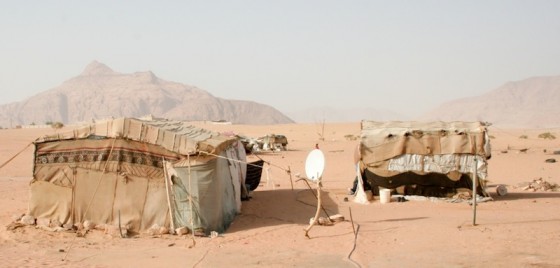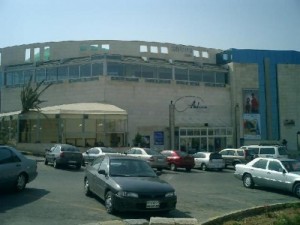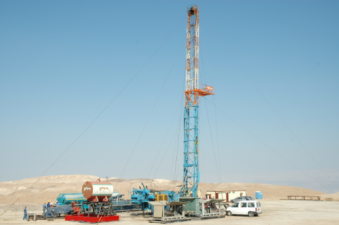Begin with a 3-pronged disclaimer: I’m no engineer; I’m as political as a daisy; and since leaving university, my preferred way of learning is fairly chaotic. I bump into things. That draw me to other things. Thing One and Thing Two quickly lead to Thing Fifty-Three; and when I look up, blinking, discombobulated, I’m “sort of” knowledgeable about something I never previously considered. My interest in Jordan’s nuclear ambitions began at work –– researching if green energy is commercially available in Jordan.
Jordan has no gas or oil reserves, and virtually no water. I learned that 80 percent of its electricity is generated from imported Egyptian gas, routed along pipelines serving both Jordan and Israel: “We depend 96% on importing our energy from outside of Jordan. It’s coming from Saudi Arabia, from Iraq and from Egypt,” said Basel Burgan, head of anti-nuke lobbyists The National Campaign to save Jordanians from the Nuclear Project, in an article in the Dominion.
“We depend on Egyptian gas that’s cheaper than heavy fuel,” he continues, “but unfortunately the Egyptians have been bombing the pipeline that’s routed through Sinai to Jordan because it’s connected at the same time to Israel,” he explained. Following the 2011 Egyptian uprisings, it was blown up four times, interrupting service and heightening security concerns.
Developing home-grown renewables is a straightforward means to reduce reliance on imports.
It also solves the security issue. The sun shines brightly on this country 90% of the year but, inexplicably, Jordan has no commercial-scale solar generation. There are whispers of wind farm development, but few turbines in sight.
Check it out yourselves. Jordan + renewables = zip.
At the gym, someone leaves a brochure on the treadmill: “Invest in Nuclear: Jordan Nuclear Power Plant Project.”
I’m bored. I leaf through it as I jog. Over half of the booklet (six pages) presents financial data. Safety and security warrants one paragraph. Nowhere does the author (the Jordan Atomic Energy Commission- JAEC) address environmental impact.
Am I sweating from exercise or concern that this program is half-baked?
I bump around the internet looking for backstory. In 2007, 65,000 tons of uranium ore were discovered in the deserts near Amman. Efforts towards nuclear production to feed Jordan’s energy needs gained momentum. King Abdullah announced plans to construct a suite of nuclear plants, aiming to export energy throughout the wider region. (As a signatory of the UN’s non-proliferation treaty, Jordan has the right to produce, use and export its own energy.)
Supported by the International Atomic Energy Commission and the US, Jordan’s program would be created via public-private partnership intended to maximize transparency, de-risk investment, and provide strong oversight. But the USA insisted that Jordan relinquish its right to use home-sourced uranium, instead purchasing its reactor fuel on the open market. Allegations abound that the USA was pressured by Israel in attempt to sabotage the program.
Recall my disclaimer: this daisy isn’t comfortable veering into politics, so let’s get back to that missing environmental assessment.
Pro-nuke people argue that the energy is sustainable, with low carbon emissions. Nuclear stops addiction to fossil fuel and provides energy self-sufficiency and security. Their safety claims weakened after Fukishima, but proponents emphasize that continual improvements in technology lessen operational safety risks. Steep initial investment is offset by long-term stable energy costs.
Anti-nuke people stay true to the environmental song sheet, citing health risks and ecological damage. Opponents take a longer view, assessing resource consumption required for uranium mining, processing and transport, reactor construction, waste handling and storage, and ultimately, system decommissioning. Resultantly, they assert that nuclear’s cradle-to-grave aspects disprove its spin as an affordable and low carbon power source.
Critics also debunk system safety, citing a string of serious accidents and contending that risks aren’t mitigated through new, as yet unproven, technologies.
There’s a logic loop between desalination and nuclear
Nuclear processing is the thirstiest form of power production, and Jordan has the fourth smallest water-to-population ratio on earth. Damage to the water table through extraction, or through contamination resulting from mining processes would have irreversible health effects on local people and ecosystems.
In Jordan, large-scale water desalination is factored into the Kingdom’s strategy to secure clean water critical for economic growth. But this water is also necessary to cool the reactors. The reactor-generated power will, in turn, desalinate the water. Neither industry is free of critical environmental risks.
Who has the moral authority to proceed with this project?
Jordan, like many Arab nations, is developing keener environmental awareness. Serious opposition to the project on environmental terms is a recent phenomenon. Initially, and allegedly, the project gained public approval simply because it was opposed by Israel.
The Fukushima disaster was instantly transformative. Empowered by the Arab Spring protests, local environmental groups, students, and concerned citizens began to express themselves through peaceful protests, organized debates, and increased presence in traditional and social media. The anti-nuclear arguments seem considered and reasonable. Requests that the government share due diligence assessments regarding the health and safety aspects of project go unanswered. Pleas to demonstrate that alternative sources of energy have been equally analyzed and funded for growth are ignored.
Last January, JAEC Chairman Khaled Toukan said, “At the end of the day, no agreements to set up a nuclear plant in the Kingdom will be signed unless thoroughly discussed and fully approved by Parliament.” Yet The Jordan Times reports that energy officials have expanded their search for a nuclear reactor site in Mafraq, and they have entered the final phase of vendor selection with a decison expected this month. Parliament has yet to approve any agreements.
In this country with few natural resources and dubious environmental enforcement, the question of how to satisfy its growing appetite for energy, in a way that maximally protects the Kingdom and its people, can not be reached without full democratic participation.
Image of Beduin tent in Jordan from Shutterstock





Laurie,
I have to counter-disagree; but forgive me for using some numbers.
The issue is, how much do these subsidies save in natural gas imports? For Areva to ‘profit’ on its own would require a very different strategy. The French naturally want to start exporting reactors and create job opportunities. However, Areva and EdF lack the coordination as their Russian or Korean counterparts.
The question is, how to properly market nuclear technology.
S.Korea had several advantages. Without wishing to discredit their achievements, the Koreans acquired US-technology; improved on it, and now seek to both construct and export their latest technology. The French by contrast ‘over-invested’ in their CY-series (900 MW) of which they field 33 such examples. As such the Koreans offer ‘newer’ systems and greater standardisation; not to mention superior economics through exports.
EdF has not demanded new reactors for a while, and only limited projects are needed. Moreover, the sheer size of Areva projects (the 1600 MW EPR for example) are not demanded in droves. More will be constructed outside France than will be ordered by France, and hence you have a task of selling something that you will hardly use.
The 1100 MW Atmea1 (being offered to Jordan) is another casepoint. Based on a cocktail of proven and or improved technologies between Areva and Mitsubishi (many derived from the EPR) it is also not likely to be constructed in France; if at all, due to an already formidable overload. Germany’s 17 surviving reactors may be phased out, but France will benefit by exporting its surpluses to Germany.
The reality is, EdF benefits, not Areva, and EdF has shown itself unwilling to cooperate w/Areva internationally (unlike the Korean consortium). As such, selection of the Atmea1 would be interesting; if it happened, because neither EdF nor Areva are likely to want to be shareholders and investors (Russian or Korean) would push for their designs instead.
Bahjat
Thanks for all your great comments – it’s always a better discussion when both sides of an issue are represented.
I disagree with your statement that Areva is not a company operating “merely for profit”. I’d argue instead that it is only because they are largely publicly owned that they are still in operation. When the Areva ship does sink, it will cause Titanic impacts to French and German economies; there are powerful forces keeping the company afloat.
At its core (no nuclear pun intended), this is all about money.
@Basel Burqan:
==============================
The story of viable Uranium Mining in Jordan is a complete falsification of facts and a distortion of Public Opinion found in most 3rd world countries that lack liability, accountability, traciability & transparency. The excacation of uranium by French Areva has found that Jordanian Uranium is NOT commercially viable and have stopped its work and sent back 99% of its employees to France. But the Jordan Atomic Energy Commission refused to announce this fact and instead used different misleading releases just to keep the media focussed on mining and nuclear power plant (NPP) building. Areva, a company that is facing severe financial problems with loss of 70% of stocks value in the past 5 years is no better. There main aim now is to locate 3rd world countries to build NPPs, which is the only way to sustain their existance after Europe & Japan closed their doors on nuclear energy. Jordan will be the first victim in the MENA region for Areva.
==============================
It is true that uranium mining was found to have concentrations of up to 93ppm (w/a cut-off of 53ppm) and grand total of only 14000 – 14500 tonnes. In real terms this is about 19-24 years of power in a single 1000 MW LWR. Mind you, the economics of uranium mining is not as B&W as people may present.
The commodity is still of strategic importance, France mines uranium in Niger for one simple reason; although concentrations in Australia or Canada are much, much richer, they intend to push for energy security. Yet Niger (being a former colony) lacks the institutional infrastructure and capital to promote ‘fair’ terms. Jordan is not in that category; but still has sufficient data for future digestion. All the same 112,000 tonnes of ‘low-grade’ uranium ores is still a strategic commodity which will grow in importance in the coming years.
Another issue is that Areva is not a company that operates merely for Profit. In retrospect, it can be compared to the privatisation drive in Jordan to (supposedly) increase efficiency; France retained public ownership of Areva in the name of ‘national security’ because profitability was not the priority. As such it does not operate w/the ‘maximum profit’ mentality because its main shareholder (French government) is not focused on this issue. Likewise, France was a ‘captive market’ (no imported reactors were allowed) to enable Areva to reach economies. Only recently have exports become critical for them and South Korea, but the Koreans are about profit from the start!
Hana Huber
That is a falsification. At least a dozen developed nations are opting for nuclear power. Only Germany and Switzerland are committed to a phase-out; Italy and Ireland to never to re-introducing and introducing (respectively), and Austria is just anti-nuclear. However, France, Sweden, Bulgaria, Finland, Netherlands, United Kingdom, Czech Republic, Poland and so on are all not only constructing new reactors, but are also introducing them (Poland for example). Sweden’s referendum which urged a phase out of nuclear power came/went (2010) and new systems are being developed.
On top of that S.Korea, Brazil, Argentina and other nations are also developing nuclear power; Indonesia and Malaysia have put it on their agenda and are making great strides. Of course, Russia, China and India top the list of nations.
It will be really Creasy to start this project where other advanced countries are getting away from it and turning into wind and solar, and they are getting very good results..unexpectedly a lot of this energy!
We are not the right country to start this…yes we are still a country of the 3 rd world.
The story of viable Uranium Mining in Jordan is a complete falsification of facts and a distortion of Public Opinion found in most 3rd world countries that lack liability, accountability, traciability & transparency. The excacation of uranium by French Areva has found that Jordanian Uranium is NOT commercially viable and have stopped its work and sent back 99% of its employees to France. But the Jordan Atomic Energy Commission refused to announce this fact and instead used different misleading releases just to keep the media focussed on mining and nuclear power plant (NPP) building. Areva, a company that is facing severe financial problems with loss of 70% of stocks value in the past 5 years is no better. There main aim now is to locate 3rd world countries to build NPPs, which is the only way to sustain their existance after Europe & Japan closed their doors on nuclear energy. Jordan will be the first victim in the MENA region for Areva.